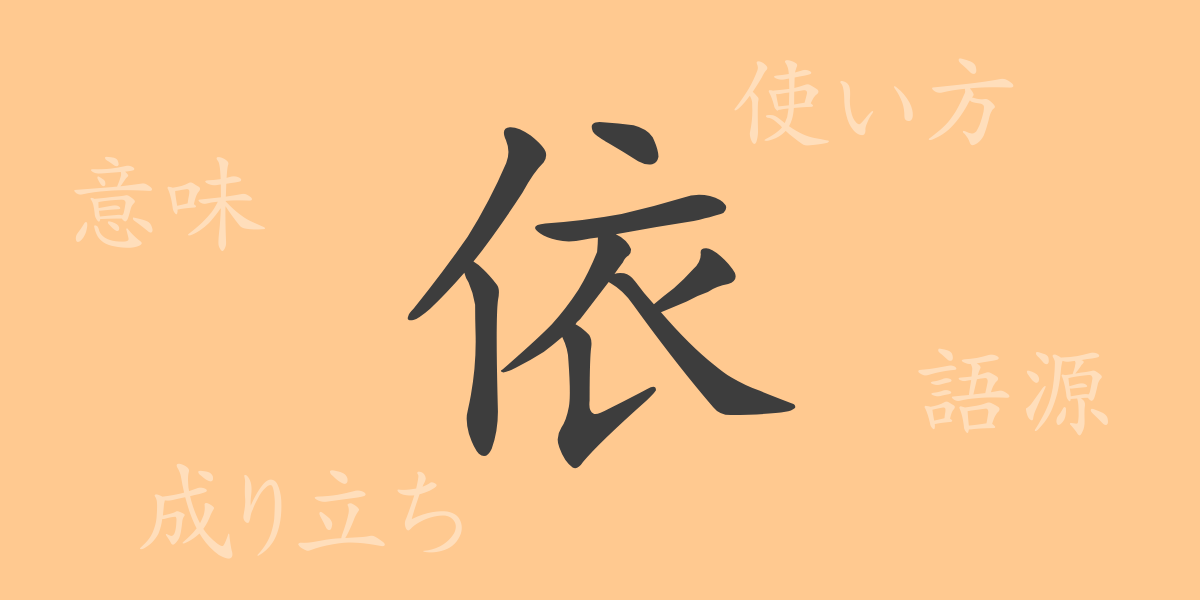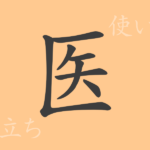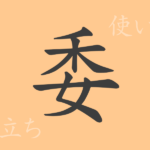“
Japanese culture and language are deeply imbued with meaning, which is evident even in individual Kanji characters. ‘依’ (I) is a common Kanji that significantly impacts our daily lives. This article will explore the origins, meaning, usage, and the phrases and proverbs associated with ‘依’, enhancing our understanding of the Japanese language.
Origins of 依 (I)
The Kanji ‘依’ originated in ancient China, initially representing the act of wearing clothing, which held significant social significance, indicating status and position. Consequently, ‘依’ came to symbolize dependence on clothing and the relationships based on this reliance. Over time, its meaning expanded to denote general dependency on people or things.
Meaning and Usage of 依
‘依’ primarily means ‘to rely on’ or ‘to depend on’, reflecting dependency or action based on something. For instance, the term ‘依存’ (dependence) indicates a state of being unable to be independent due to reliance on something. ‘依頼’ (request) means asking someone for a favor, and when used as ‘依然’ (still), it means ‘as before’.
Readings, Stroke Count, and Radical of 依
‘依’ is a crucial Kanji in the Japanese lexicon, registered in the common use Kanji chart, making its reading and structure vital for learning Japanese.
- Readings: On’yomi (Sino-Japanese reading) is ‘I’, Kun’yomi (native Japanese reading) includes ‘Y-ru’, ‘Yo-seru’
- Stroke Count: 9 strokes
- Radical: 亻(Ninben)
Phrases, Idioms, and Proverbs Using 依
Numerous idioms and proverbs contain ‘依’, each enriching the Japanese language. For instance, ‘依存症’ (addiction) refers to a strong dependency on a specific substance or behavior. ‘依頼人’ (client) denotes someone who asks others to act on their behalf. ‘依然として’ (still) is used to express that something remains unchanged from before. These phrases are frequently used in daily conversation and business contexts.
Summary of 依
The Kanji ‘依’ illustrates relationships and dependencies, playing a vital role across various Japanese expressions. Understanding and using this Kanji can enrich one’s proficiency in Japanese, offering deeper insights into the language’s complexity. Through ‘依’, we can appreciate the depth of the Japanese language.
“

























